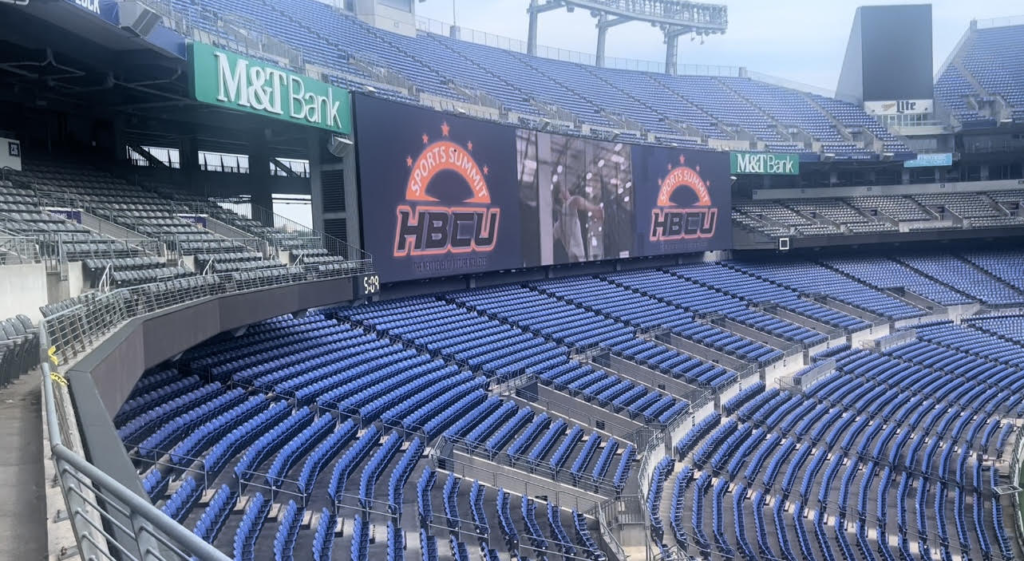
The HBCU Sports Summit kicked off its first day of many in Baltimore last weekend. The summit took place in the M&T Bank Stadium, bringing awareness to HBCU topics that might not be discussed upon admission to these schools. The event was tailored for high school athletes but was open for all students.
The idea of the HBCU Sports Summit was created by Ro Rochester, chairwomen of the HBCU Sports Summit, after feeling like there was a need for HBCUs to be highlighted for accomplishments that tend to be overlooked.
“It came to fruition because we know that we need to create a space for us where we can have conversations, to highlight and showcase our HBCUs and also get our youth and everyone involved,” Rochester said. “We wanted to really create conversations where we can all talk, get together, be in a safe zone, comfortable space, so we can encourage and uplift each other.”
Numerous HBCUs were set up at tables throughout the stadium showing their pride, including Howard University. Karina Sanchez and Anthony Bierra Anderson represented Howard at the sports summit, both serve as assistant directors of Howard University admissions. Sanchez emphasized that Howard is on the rise in the sports world, praising the number of academic roads the school has.

“We want all students to know that Howard welcomes them and we are looking forward to them applying,” Sanchez said. “We offer over 200 plans, programs, majors and we are really great at athletics right now. So we just want them to know that we are excelling in every aspect of the university right now.”
The summit commenced with the introduction of people who played key roles in event planning, including Ro Rochester, Terrance Davis, the co-chairman of the HBCU Sports Summit, Shaquira Martin, the communications chair of the HBCU Sports Summit, and also keynote speaker Shemar Bridges, a wide receiver for the Baltimore Ravens, who also graduated from Fort Valley State University, which is an HBCU located in Georgia.
The paneling of the summit began with a discussion on what separates HBCUs from other schools across the nation titled “Why Not Choose an HBCU.”
The summit featured discussions from important figures in the HBCU landscape, such as Dr. David Wilson, president of Morgan State University. Wilson graduated from Tuskegee University before embarking on his career in education, where he could see how different PWIs work compared to HBCUs. Even with these experiences, Wilson still believes that HBCUs shape students in ways that other institutions can’t match.
“I have walked in and out of all types of higher education institutions,” Wilson said. “If I had it to do all over again today, knowing what experience is like in the Ivy League, in the Big Ten, in every genre of institutions in the country, David Wilson would make the same decision because that institution prepared me so well.”
The summit discussed mental health in the Black community in a panel featuring college athletes and other African Americans who have experienced mental illness. Montressa Tripps, the community education coordinator in the policy and communication department at Behavioral Health System Baltimore, spoke on ways that African-Americans talk about mental illness in their day to day lives.
“We inform and we understand as African-Americans most of us do not seek help. They believe that we do not seek out professional therapists or psychiatrists, someone to talk to,” Tripps said. “We generally, and a lot of times historically, seek information from our bodies, our pastors, our older individuals. We go to them to talk about things that we may be going through, but the stigma that the community may have is not completely true, because a lot of us do go and seek professional help.”
Looking ahead, the summit has many NFL teams they are looking to partner with to continue to promote HBCUs across the country, such as the Baltimore Ravens, the New York Giants and the Indianapolis Colts.
Copy edited by Jasper Smith































